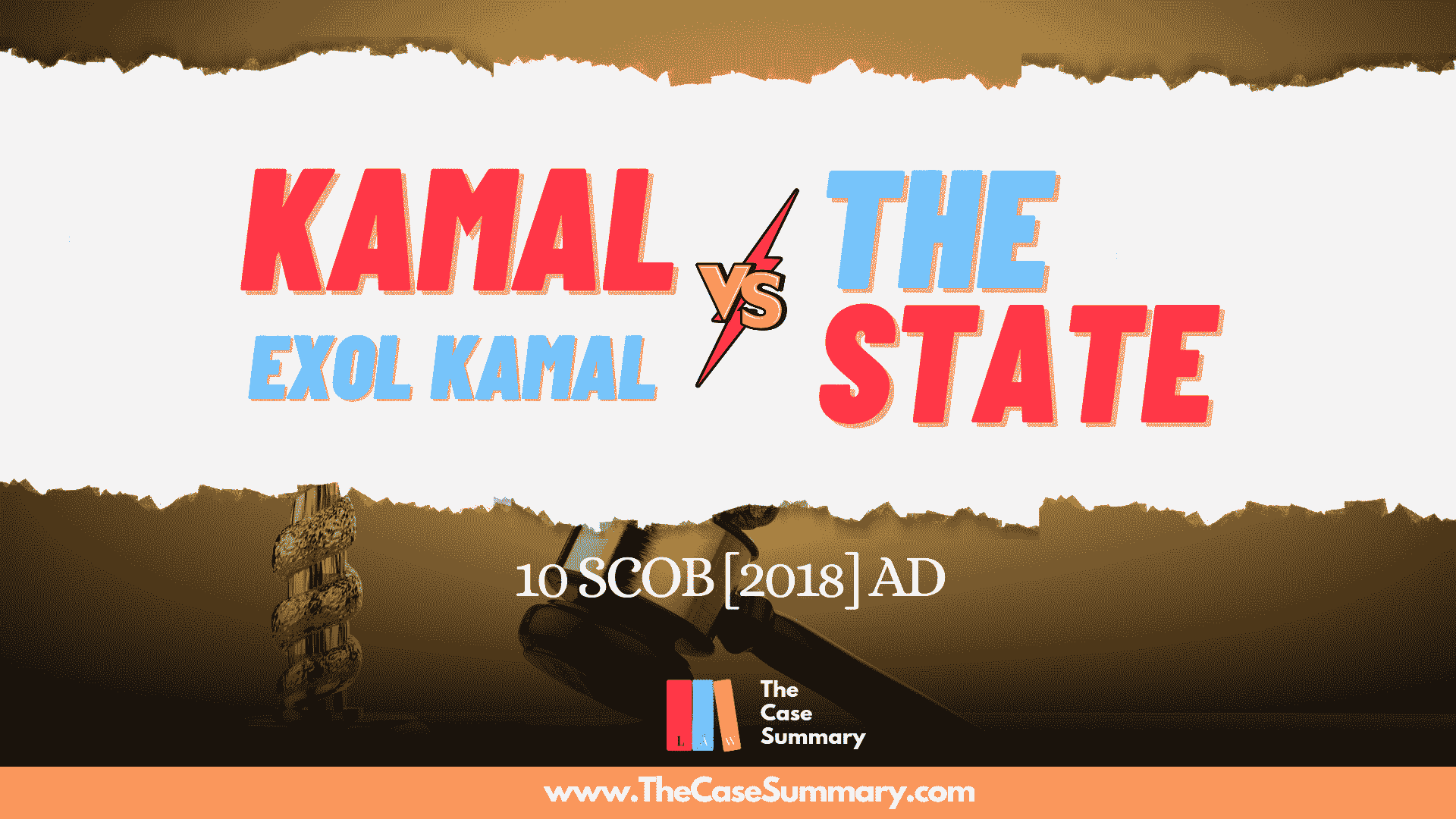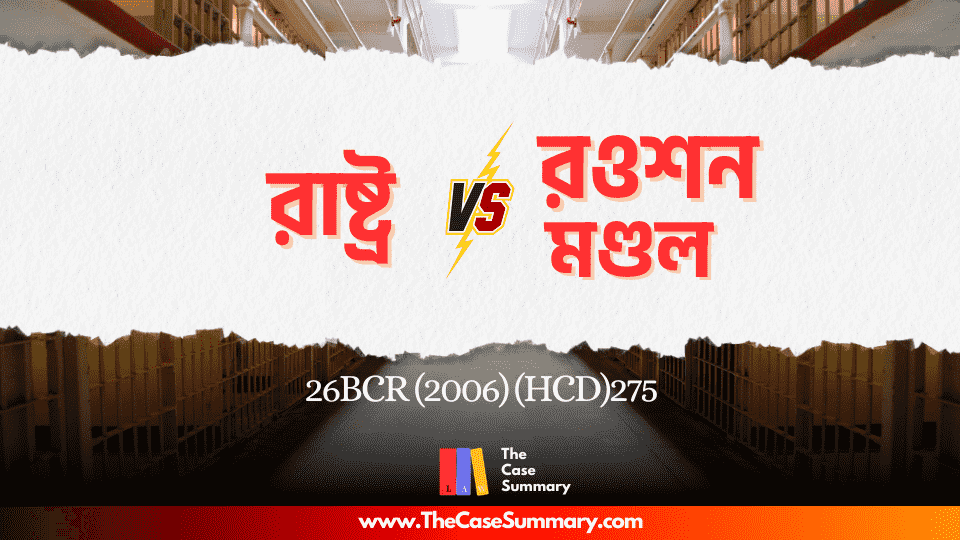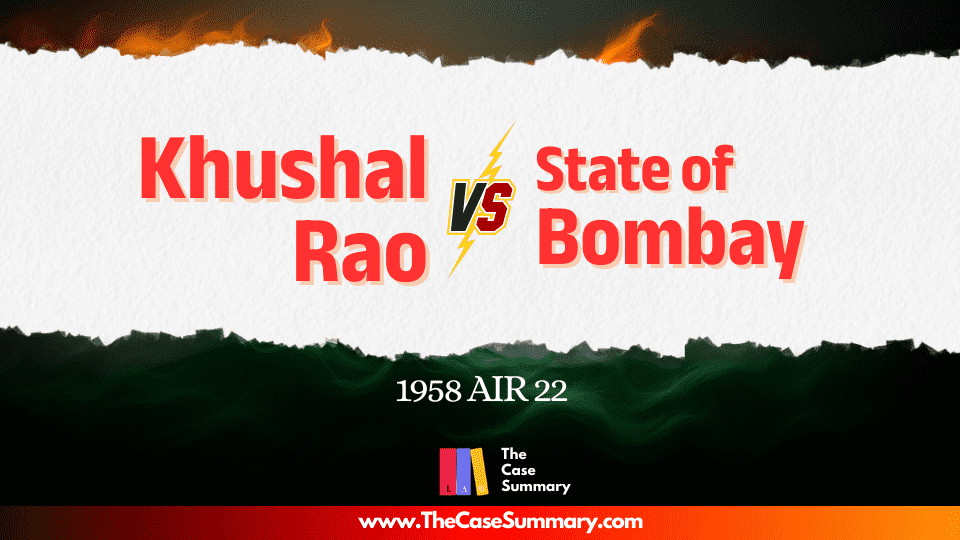Kamal alias Exol Kamal vs The State
Reference : 10 SCOB [2018] AD
Jurisdiction : Bangladesh
Appellant : Kamal alias Exol Kamal (Defendant, in the court of first instance)
Respondent: The State (Plaintiff, in the court of first instance)
Facts :
On 2nd March 2004, around 8:00 PM, the victim Giasuddin, a local peace committee member, was fatally shot by accused Ibrahim alias Ibu along with appellant Kamal alias Exol Kamal when he returned home. The main accused lured Giasuddin outside his house for an urgent discussion. On the road near his residence, the accused opened fire on Giasuddin followed by others. After the attack, the victim was rushed to hospital where he was declared dead. Since Giasuddin opposed the accused’s illegal actions, it was suspected that personal hostility was the driving force for the murder.
Locals and the victim’s relatives were among the witnesses who recognised the assailants under an electric light. A charge sheet was filed against the main accused Ibrahim alias Ibu along with the appellant Kamal alias Exol Kamal and eight others under Sections 34 and 302 of the Penal Code. The Court of Sessions convicted the appellant and two others, sentencing them to death with a fine of Tk. 50,000 each; in default to suffer rigorous imprisonment for 1(One) year more while four were acquitted and one died during the trial.
The High Court Division accepted the death reference, affirming the decision of the trial court. The appellant Kamal alias Exol Kamal appealed against the conviction and death sentence.
Issues:
1. Was the appellant properly convicted of murder under Section 302 of the Penal Code based on the evidence presented?
2. Should the death sentence given to the appellant be reduced to life imprisonment?
Arguments :
The appellant’s advocate argued that the conviction and death sentence were unjustified. He claimed the appellant Kamal alias Exol Kamal was innocent and falsely implicated due to prior enmity. Discrepancies in witness testimonies, especially about the weapon used were submitted. Witnesses (family members of the victim) claimed that the appellant fired shots with a pistol but this wasn’t clearly stated in the FIR.
The doctor couldn’t confirm if the injuries were caused by a pistol or revolver, creating doubt. No case under the Arms Act was filed against the convict appellant nor the alleged pistol was recovered which would prove that the appellant had been falsely implicated with the alleged occurrence out of previous enmity. It was argued that there was improper examination of independent witnesses. During the inquest, family members made conflicting testimony, and none of them reported witnessing the incident. The appellant was not properly questioned under Section 342 of the Code of Criminal Procedure.
The respondent submitted that the victim, a veteran freedom fighter and Adviser to the local Law and Order Committee, actively opposed the accused’s criminal activities and decided against them in a shalish (informal arbitration), provoking their anger. That’s why the victim was brutally killed at close range because he resisted the appellant’s illegal actions.
Decision :
The Appellate Division confirmed that Giasuddin’s murder was a cruel, premeditated, and intentional crime, upholding the appellant’s conviction and death sentence. After luring the victim from his home, the appellant shot him many times at close range. The court found that testimony given by both independent and family witnesses was trustworthy. The court determined that the evidence contained no noteworthy contradictions.
The murder’s motivation was evident due to the victim’s activism against the appellant’s illegal actions. Since both pistols and revolvers might result in bullet injuries, the appellant’s claim regarding the type of weapon was deemed irrelevant. Regarding the commutation of the death sentence, the Court judged the crime to be vicious and deliberate. The appellant’s criminal record proved his continued threat to the community. Bangladesh does not consider the death sentence to be unconstitutional.
The U.S. Supreme Court ruled in Gregg v. Georgia (1976) 428 U.S. 153 that the death sentence is not always inappropriate when used for intentional murder and can be appropriate for the most serious offences as long as the proper processes are followed. Bangladeshi case law has likewise upheld this principle.
The court rejected the appeal and jail petition after concluding that the death penalty was justified.
Relevant Laws :
- The Penal Code, 1860
- Section : 34, 302
- The Code of Criminal Procedure, 1898
- Section : 342
Author :
1. Sumaira Ahmed
Note: The Case Summary is a platform by the law students, for the law students. We aim to summarize the facts and decisions of various important cases in both Bangla and English with utmost caution. However, this platform is in no way a replacement for going through the complete judgements by the law students and we discourage any learner from relying on case summaries alone. Thank you.



